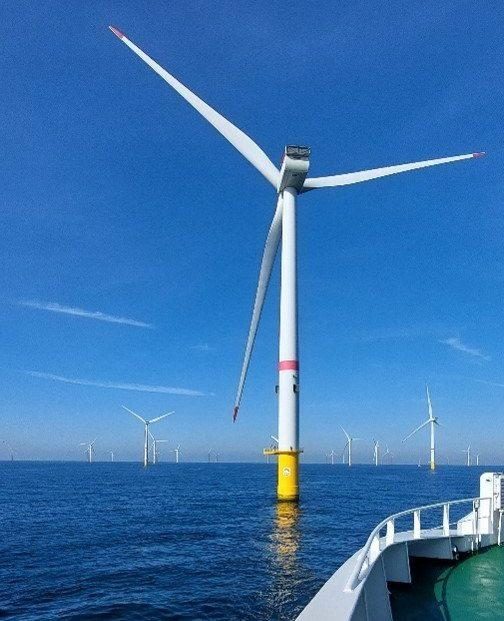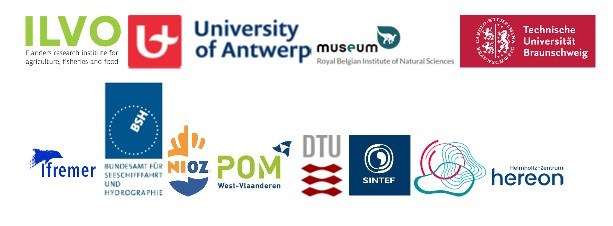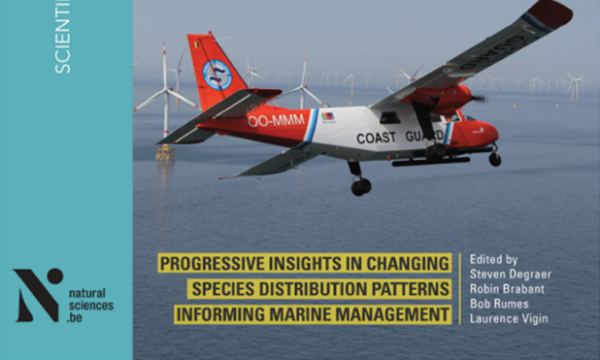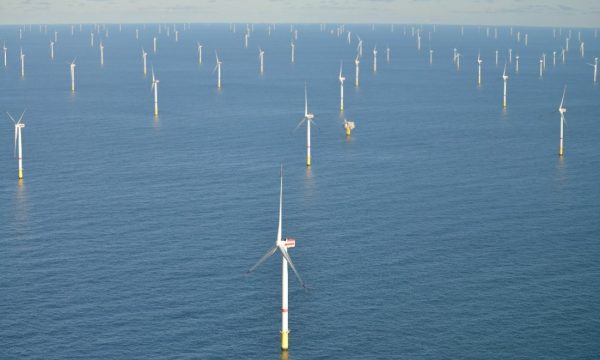Press release Towards minimal chemical pollution and greater sustainability of offshore wind energy production

Advantages of offshore wind farms
Offshore wind energy offers many advantages: in addition to the primary purpose of renewable energy production, offshore wind farms (OWFs) also offer opportunities for multiple use with nature conservation and aquaculture activities, and have beneficial effects on the marine ecosystem. The environmental impacts of OWFs in the North Sea are routinely monitored in terms of the impact of the introduction of new habitats, underwater noise or the exclusion of fisheries. However, the potential chemical contamination with dissolved and particulate pollutants from the wind turbines, for example from the corrosion protection systems, remains largely unknown.The Anemoi project, funded through the Interreg North Sea program, aims to: (1) identify relevant chemical emissions of known and unknown pollutants from OWFs, (2) assess the impact on ecosystems and aquaculture activities, (3) review current regulations, and (4) propose sustainable solutions and options to reduce chemical emissions from OWFs. Within the Anemoi project, researchers from 11 European institutes will work closely with policy makers and the OWF industry. A first stakeholder meeting is scheduled for May 30-31, 2023, in Hamburg, Germany.
Chemicals enter the marine environment through numerous land-based sources related to industry, traffic or households, and marine activities such as shipping, mariculture, dredging and offshore energy.
Over the next four years (2023-'27), 11 European institutes will conduct research on the occurrence and effects of chemical emissions from offshore wind farms in the North Sea. Foundations of wind turbines contain corrosion protection systems, which leach metals such as aluminum or zinc into the sea. Paint on the turbines leaches organic compounds into the water, while wave action can cause the paint to crack and peel off the turbines, and plastic particles can be torn off the turbine blades. Within Anemoi, an Interreg North Sea project, the emission, concentration, and distribution of known and unknown chemical compounds in the water and sediments will be determined through field monitoring and laboratory experiments (e.g., by mimicking particle distribution in a wave flume system).
Second, the effect of chemical leaching products from OWFs on marine life and various aquaculture products will be assessed through ecotoxicological studies and risk assessments, and effects at different trophic levels will be modeled for both single and mixed chemical compounds.
Third, several regulations are currently in place at national and European levels to mitigate the impact of chemical emissions from OWFs. To further reduce the potential impact, the various regulations in the North Sea region will be reviewed and an aligned regulatory framework will be proposed. Finally, Anemoi will research sustainable and non-harmful solutions (e.g., alternative corrosion protection systems) and optimizations to further reduce chemical emissions from OWFs.
To achieve the project objectives, Anemoi will work closely with the offshore wind farm industry and policy makers. A first stakeholder event is planned for May 30-31, 2023 in Hamburg, Germany, to exchange knowledge on the impacts and risks of chemical emissions from OWFs and to discuss possible solutions to further increase the sustainability of offshore wind energy.
The Anemoi Project is funded by INTERREG North Sea.
Project partners:
Flanders Research Institute for Agriculture, Fisheries and Food (ILVO, België); Royal Belgian Institute of Natural Sciences (RBINS, België); Federal Maritime and Hydrographic Agency (BSH, Duitsland); Sintef Ocean AS (Noorwegen); French Research Institute for Exploitation of the Sea (Ifremer, Frankrijk); Provincial Development Agency West-Flanders (POM-WVl, België); Stichting Nederlandse Instellingen voor Wetenschappelijk Onderzoek - Koninklijk Nederlands Instituut voor Onderzoek der Zee (NWO I - NIOZ, Nederland); Helmholtz Centrum Hereon (Hereon, Duitsland); Technische Universiteit Braunschweig (TU BS, Duitsland); Universiteit van Antwerpen (UAntwerpen, België); Technische Universiteit van Denemarken (DTU, Denemarken).
Supplementary funding: Provincie West-Vlaanderen (België); VLAIO (België).

Projectwebsite: https://www.interregnorthsea.e...
LinkedIn: https://www.linkedin.com/compa...
Contact: Bavo De Witte, projectcoördinator, bavo.dewitte@ilvo.vlaanderen.be


